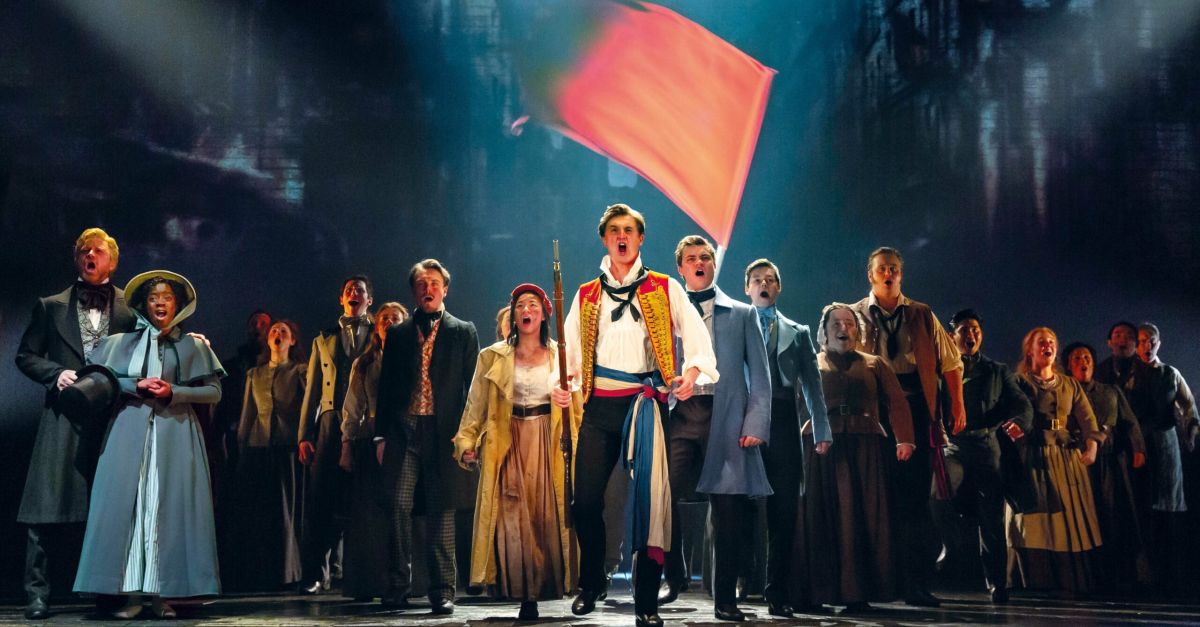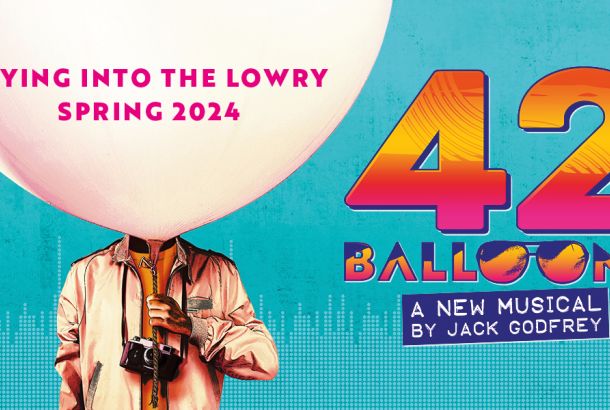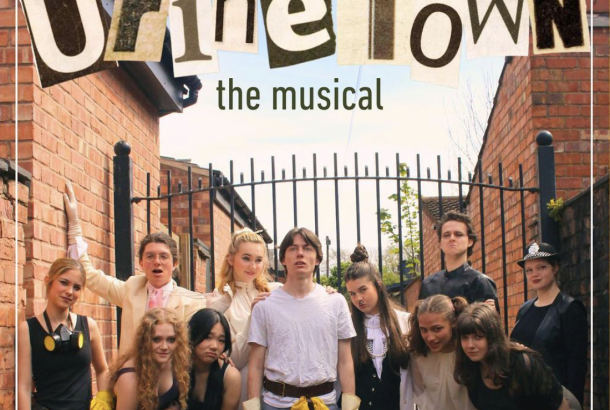Les Misérables: a magical musical or mere misery?

Les Misérables, or Les Mis, is one of the world’s best-known novels and plays. It was written as a novel by Victor Hugo, published in 1862. Set in the early 19th century, France, the story follows Jean Valjean from 1815, all the way to the June Rebellions in 1832.
Since it was written, the novel has been adapted into plays, TV series, and a Hollywood film. I went to see the stage musical adaption, as having played it in school productions, I was excited by it.
During the interval, I overheard a conversation between two women about the show. The first said, “This was fantastic!” to which her friend replied, “I think it’s the best one yet.” I, however, would disagree. The musical as a whole was amazing to watch, but it lacked on too many points.
In the first act, you follow the life of Jean Valjean, played by Dean Chisnall. We see how Valjean struggles with life after being in prison, hitting rock-bottom, and how he tries to come back out of it. However, in this part, within the novel itself, the turning point in Valjean’s life is meeting a priest who helps him. In the musical, however, Valjean hitting rock bottom felt rushed. It didn’t feel like he had actually hit rock-bottom because you never got a chance to process that he had. Hence, when he met the priest, the turning point in his life did not feel deserved; it just felt like it happened. Further, as soon as it happened we jumped to when he becomes mayor. There was not time given to process any of this information as it took place, as you just sat there as, scene by scene, it all went past.
Furthermore, every time Jan Valjean took the stage alone, the stage just looked empty. There were moments where set-pieces was removed, and I can see that the point was to pull focus on Valjean, but at the same time, his life was in a mess, and in those moments, except for the dialogue, nothing else showed it.
Meanwhile, we also see glimpses of Nic Greenshields’ Javert. Greenshields played the character very well. He took command of the stage when it needed it, and has a voice and a modulation that I would imagine to be none other than Javert’s.
As the story goes on, you get to the part where Jean Valjean is now a mayor. Here, instead of Valjean’s story, we follow that of Fantine, played by Katie Hall. Once again, you get through her life rushed. You see her struggling with the fact that she has been kicked out of a job. In the story, once Fantine becomes a sex worker, you see her struggle with life and give up on everything she held dear. However, that moment just happens and is flashed by you.
Once Valjean comes back into the picture, you want to see the struggle that Valjean would have between helping Fantine and accepting his crime of breaking parole, when Javert looks for him. But you don’t see that again. You get one song explaining it, but more than that, you don’t feel attached to the struggle of him.
The stage music is not that attractive. Instead, at many points, it looks like the actors are set in such a way with the stage that they are waiting for a photo op. It does feel a bit disappointing.
However, once Fantine dies, the play takes itself up a notch. When they introduce the Thenardiers, for example, who are fun, stupid and largely entertaining. The actors, Helen Walsh and Ian Hughes, take these scenes in a stride; there’s a certain level of energy and fun that seemed to have brought back life into the play. The audience seemed to be laughing and enjoying, as the play stopped taking itself seriously.
Once you reach Paris and see the school protests, you find the play to be taken up another notch. Will Callan and Samuel Wyn-Morris, playing Marius and Enjolras, both give fantastic performances. This play is Callan’s professional debut, hence there are certain aspects in his acting and singing that do seem like he has not exactly found his footing and style yet. However, Wyn-Morris steals the show. You are convinced by the fact that he wants the revolution above all else. In Wyn-Morris, you see the desperation and despair with which Enjolras conducts himself. Even the aspects where Enjolras takes himself too seriously, Wyn-Morris does not make it a caricature-ish portrayal that could have easily happened.
You also see Cosette, played by Paige Blankson, want and need to know more from Jean Valjean, as we enter the second act. Blankson and Chisnall’s chemistry onstage felt very satisfying,; they seemed like father and child. The play also finally gave time to the audience to see and understand the story. Till now, only the people who already knew the story would have been able to follow, but only now are new audiences feeling settled in.
This half of the play, in my opinion, was amazing. Here, you could see why the play is as renowned as it is. The music is taken up a notch. What earlier felt flat and not in tune with the play, was completely synced up. My only critique of the music will be the fact that they randomly used a guitar. The play was using an orchestra all along; to put one lonely guitar in the mix out of nowhere felt very odd. However, the orchestra as a whole in this act was brilliant. They wrapped the musical as a whole; no longer was anyone left lonely on stage. Even the singing in this half went up a tone. Earlier, the singing was good, but it just didn’t feel right in places, however, now you felt the singing and became a part of the story.
With the music and singing brought together, the chorus scenes became more enriching. Every time you heard the students sing “Do you hear the people sing,” you as an audience member felt you wanted to sign it with them. Truly, in this half, you wanted the musical to keep going as you could see it becoming better.
The stage production as a whole was also fantastic. It was a very highly produced production, and you could see the set pieces moving in an out rather seamlessly throughout. While the first half alone may not have justified the use of such a high production, this half made up for it. I did specifically like when they started making the barricades and you just had the student ensemble sing as the set is being moved around them. If felt like they were playing with the set, and that came off amazingly well.
Even the props that they used were amazing. The guns, and how they fired, as well as the used of Épopnine’s hat in Marius’ hands once she is deceased, were aiding the story is many ways.
However, they still lacked on two individual aspects, with the story of Éponine and Gavroche. Épopnine, played by Nathania Ong, is supposed to feel rejected, hurt and beaten down by her life. The musical does try to show that, and it gives us a lot of time with Épopnine, but you never feel it coming through to actually feeling bad for her.
Meanwhile, Gavroche, played by multiple child actors, is meant to be this sweet, quippy, sarcastic and energetic little boy. The story wants you to fall in love with Gavroche, and hence feel terrible when he dies. However, you don’t. It could be the lack of time given to the character on stage, and hence the lack of lines, but you see Gavroche as just any other character, when he is meant to be so much more.
Hence, I say that, as a whole, the muscal was good, but not great. It had many amazing factors, but in many other instances, it lacked what it was meant to bring to the table. There are yet hopes for the show, but it is not up there in the stars as many people make it out to be after having seen it in the West End.
Les Misérables runs at the Lowry (Lyric Theatre) until 23rd April before continuing its UK and Ireland tour until January 2023.







